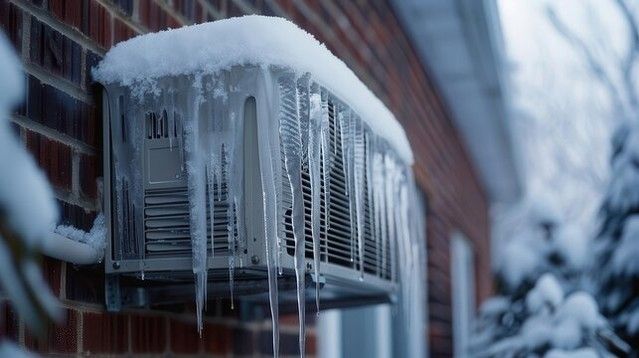HVAC Emergency: Complete Guide to Emergency Heating and Cooling Solutions
When your heating and cooling system fails unexpectedly, an HVAC emergency can quickly turn from a minor inconvenience into a major crisis. Whether it’s the dead of winter or peak summer heat, emergency HVAC situations require immediate attention to protect your home, family, and comfort. Understanding what constitutes an HVAC emergency, recognizing warning signs, and knowing when to call for 24/7 emergency services can save you time, money, and stress.
This comprehensive guide will walk you through everything you need to know about HVAC emergencies, from identifying urgent situations to preventing future problems. We’ll cover emergency HVAC repair options, help you understand your heating and cooling system, and provide actionable steps to take when disaster strikes. By the end, you’ll be equipped with the knowledge to handle any HVAC emergency with confidence.
What Constitutes an HVAC Emergency?
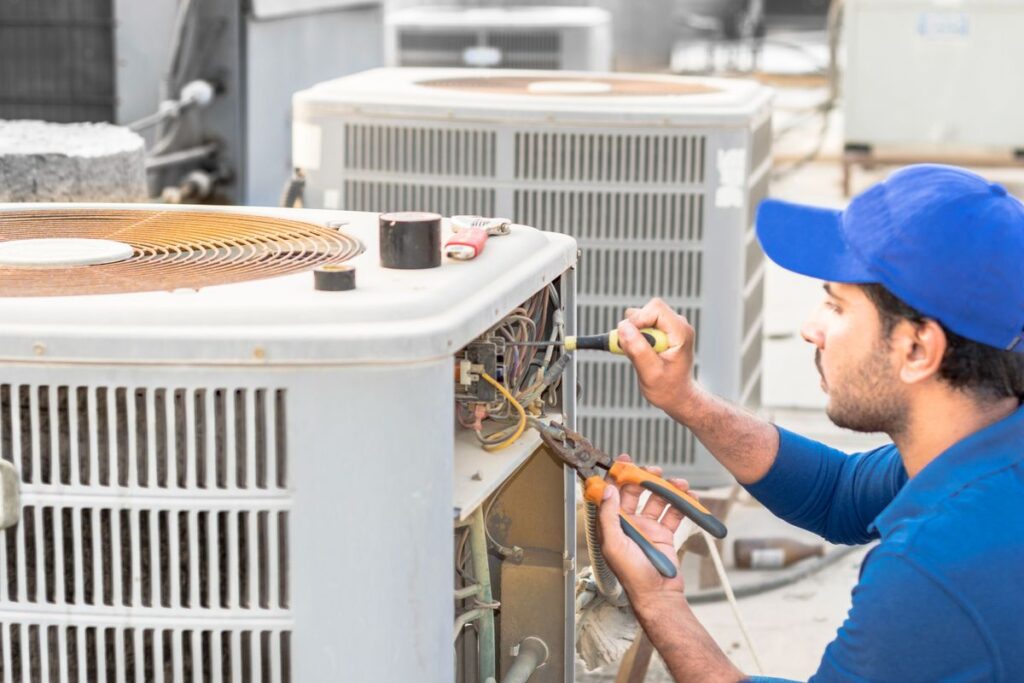
An HVAC emergency typically involves any situation where your heating and cooling system poses immediate safety risks, causes property damage, or creates unbearable living conditions. Not every air conditioning or furnace problem qualifies as an emergency, but certain scenarios demand immediate professional attention.
True emergency HVAC situations include complete system failures during extreme weather, gas leaks from your heating system, electrical issues that could cause fires, and refrigerant leaks that pose health risks. When your HVAC system stops working entirely during dangerous weather conditions, this becomes a health and safety concern that requires 24/7 emergency services.
Common HVAC Emergency Scenarios
Understanding the most frequent HVAC emergencies can help you prepare and respond effectively. These scenarios often require immediate action to prevent damage, ensure safety, and restore comfort in your home. Being aware of these common situations allows you to recognize when to call for professional emergency HVAC services.
| Emergency Type | Severity Level | Immediate Action Required |
| Complete system failure during extreme weather | Critical | Call 24/7 emergency HVAC services immediately |
| Gas leaks or odors | Critical | Evacuate home, call the gas company, and emergency HVAC |
| Electrical sparking or burning smells | High | Turn off the system, call emergency HVAC repair |
| Water leaks are causing property damage | High | Stop the water source, call emergency services |
| Carbon monoxide detector activation | Critical | Evacuate immediately, call emergency services |
| Complete heating failure in freezing weather | Critical | Implement safety measures, call emergency HVAC |
Gas-related emergencies demand immediate action and understanding of carbon monoxide safety guidelines to protect your family from potentially deadly exposure.
24/7 Emergency HVAC Repair: When to Call Professionals
Knowing when to call for emergency HVAC repair can make all the difference in maintaining your home’s safety and comfort. This section will help you identify the critical signs that require immediate professional attention to prevent further damage or health risks.
Critical Timing and Professional Emergency Assessment
Knowing when to call emergency HVAC services versus scheduling regular maintenance is vital for homeowners, especially during extreme weather conditions when heating or cooling system failures become immediate emergencies. Emergency HVAC repair companies often provide 24/7 services, including weekends and holidays, to address urgent situations promptly.
Certified emergency HVAC technicians are equipped with specialized tools and replacement parts to quickly diagnose and repair issues, often faster than standard service appointments. While emergency services may incur higher costs due to after-hours labor, acting swiftly helps prevent extensive damage and higher repair expenses.
Professionals can also offer temporary fixes to maintain comfort and safety until permanent repairs are completed, ensuring convenience during critical situations.
Air Conditioning Emergencies for Summer Cooling Crises
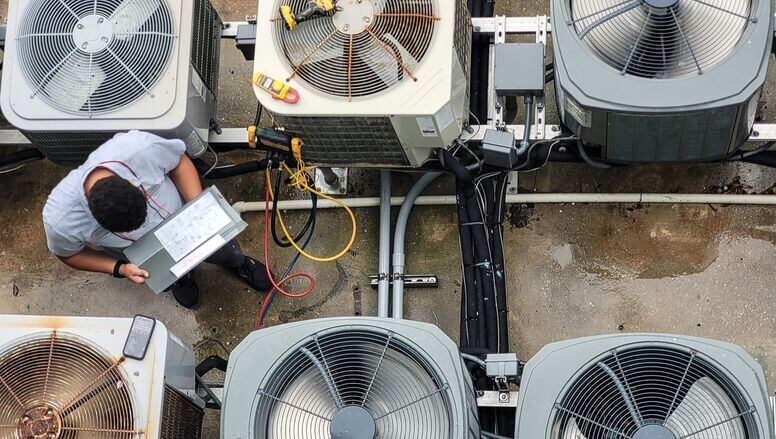
During the hottest months, a malfunctioning air conditioner can quickly turn into a serious emergency, putting your comfort and health at risk. Understanding common air conditioning emergencies and how to respond promptly is crucial to keeping your home safe and cool.
Heat Wave System Failures
During extreme summer heat waves, air conditioning failures can create dangerous indoor temperatures. Common issues like refrigerant leaks and electrical problems require immediate professional HVAC repair. While waiting, homeowners can use fans, close blinds, and stay hydrated to manage heat. Checking air filters may help minor issues, but serious problems need expert attention.
Immediate Cooling Solutions
If your air conditioner fails during a heat wave, prompt action is essential to maintain safety and comfort. Temporary measures like fan use and blocking sunlight can help reduce indoor heat until repairs arrive. Avoid DIY fixes for electrical or refrigerant issues and contact emergency HVAC services promptly for safe and effective restoration.
Heating System Emergencies for Winter Comfort and Safety
Winter heating system emergencies demand immediate attention to ensure safety and maintain comfort. Recognizing furnace failures and heat pump issues is crucial, especially in freezing temperatures, where risks like frozen pipes and property damage increase.
Gas heating emergencies are particularly dangerous due to potential carbon monoxide exposure and gas leaks, requiring swift evacuation and professional intervention. Homeowners should prioritize safety measures such as closing unused rooms, using safe supplemental heaters, and preventing frozen pipes by dripping faucets and opening cabinets.
Preventive Measures to Avoid HVAC Emergencies
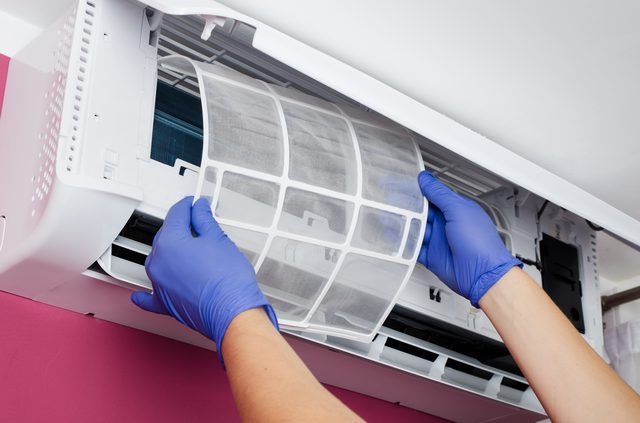
Proactive HVAC system maintenance significantly reduces emergency repair situations by identifying and addressing potential issues before they escalate. Consistent care not only extends the lifespan of your equipment but also ensures optimal performance and energy efficiency. Taking preventive steps helps maintain a safe and comfortable home environment year-round.
Monthly Maintenance Tasks:
- Replace or clean air filters
- Check thermostat settings and operation
- Inspect the outdoor unit for debris
- Listen for unusual system sounds
- Monitor energy bills for efficiency changes
Seasonal Maintenance Checklist:
| Season | Maintenance Tasks | Professional Services |
| Spring | Clean outdoor AC unit, test cooling system | Professional AC tune-up and inspection |
| Summer | Monitor refrigerant levels, check airflow | Emergency HVAC contact information is ready |
| Fall | Test heating system, clean vents | Professional heating system inspection |
| Winter | Check for drafts, monitor heating efficiency | Schedule emergency HVAC services if needed |
Annual Professional Services:
- Complete system inspection and tune-up
- Electrical connection testing
- Refrigerant level checks
- Ductwork inspection
- Safety system testing
- Component wear assessment
Scheduling regular maintenance with qualified residential HVAC services helps prevent unexpected breakdowns and identify potential emergencies before they occur.
System Monitoring and Maintenance
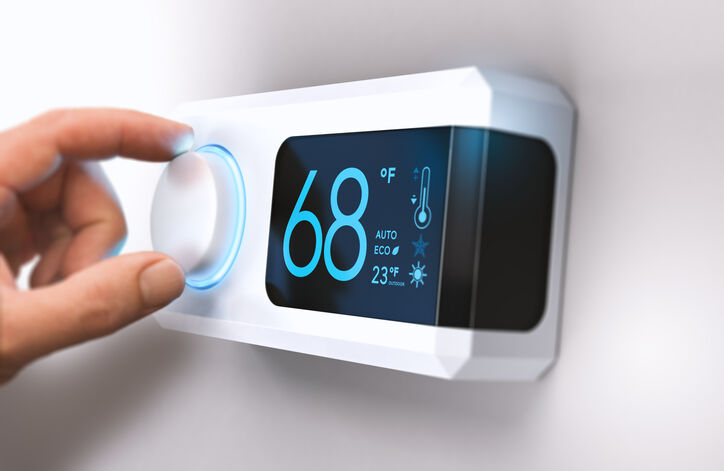
Homeowners should regularly monitor their heating and cooling system performance for early warning signs of potential problems. Unusual noises, inconsistent temperatures, and increased energy consumption often indicate developing issues requiring attention.
Keeping HVAC equipment areas clear of debris and obstructions ensures proper system operation and reduces emergency risks. Both indoor and outdoor units need adequate clearance for airflow and maintenance access. Understanding your thermostat programming helps optimize efficiency and prevent emergencies; many modern thermostats provide diagnostic information that can help.
Choosing Emergency HVAC Services: What to Look For
When an HVAC emergency strikes, choosing the right service provider is crucial for fast, reliable, and safe repairs. Look for qualified companies with proper certifications, experience, and resources to handle urgent situations effectively.
Trustworthy providers prioritize customer safety, clear communication, and professional expertise. Making an informed decision during critical moments ensures your home’s comfort and security are restored promptly.
Essential Qualifications to Verify:
- Licensed HVAC contractors in your state
- Certified technicians (NATE, EPA certifications)
- Comprehensive liability insurance coverage
- Workers’ compensation insurance
- Better Business Bureau accreditation
- Local references and customer reviews
24/7 Service Capabilities:
- Genuine round-the-clock availability
- Emergency response team on-call
- Realistic response time commitments
- Emergency parts inventory
- Mobile service vehicles equipped for emergencies
- Communication throughout the service process
Professional Standards Checklist:
| Qualification | Why It Matters | What to Ask |
| Licensing | Legal compliance and training standards | “Are you licensed in our state?” |
| Insurance | Protection against accidents and damage | “Can you provide insurance certificates?” |
| Certifications | Technical expertise and ongoing education | “What certifications do your technicians hold?” |
| Experience | Knowledge of various HVAC systems | “How long have you provided emergency services?” |
| Equipment | Ability to diagnose and repair quickly | “Do you carry emergency parts and tools?” |
Cost and Service Transparency
Understanding emergency service pricing helps homeowners prepare for urgent repair costs. While emergency HVAC services often cost more than regular maintenance, reputable companies provide upfront pricing, avoid hidden fees, and offer warranties on repairs. Clear communication about options, costs, and timelines ensures homeowners can make informed decisions during stressful emergencies.
Technology and Modern HVAC Emergency Solutions
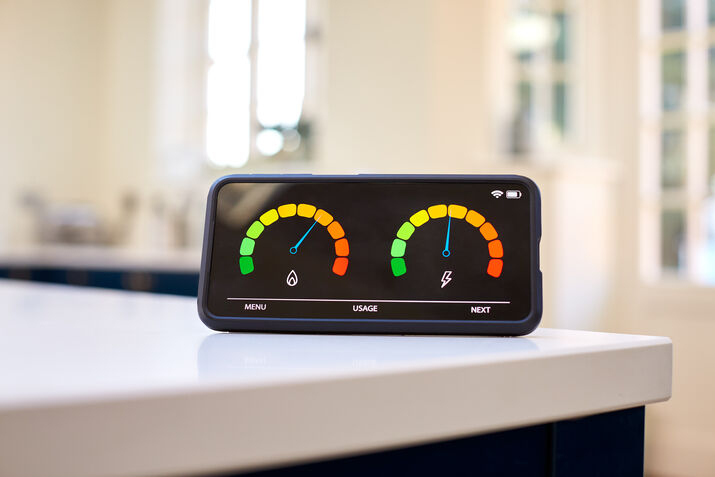
In today’s world, technology plays a crucial role in enhancing HVAC emergency responses. Modern innovations help detect issues early and streamline repairs, ensuring your system stays reliable when you need it most.
Smart System Monitoring
Modern HVAC systems increasingly incorporate smart technology to prevent emergencies through early detection and remote monitoring. Smart thermostats provide detailed performance data and can identify irregular patterns indicating potential problems. Some systems even automatically alert emergency HVAC services when critical issues arise. Additionally, remote diagnostics enable technicians to assess problems before arriving, ensuring faster and more efficient repairs.
Advanced Diagnostic Tools
Professional emergency HVAC services use advanced diagnostic equipment to quickly identify and resolve issues. Tools like thermal imaging cameras help detect hidden problems such as refrigerant leaks, electrical hotspots, and insulation defects that can lead to system failures. Digital system analyzers provide detailed performance data, enabling technicians to develop effective repair strategies instead of just temporary fixes during emergencies.
Seasonal HVAC Emergency Preparedness
Preparing your air conditioning system for summer heat helps prevent emergencies by ensuring optimal performance during peak demand. Regular maintenance and timely inspections can identify potential issues before they escalate, keeping your home cool and comfortable throughout the hottest months.
Pre-Season AC Preparation and Maintenance:
- Schedule a professional AC tune-up and inspection
- Replace air filters before and regularly during the cooling season
- Clean the outdoor condenser unit and the surrounding area, removing debris and trimming nearby vegetation
- Test thermostat operation and check electrical connections, including circuit breakers
- Inspect ductwork for leaks or damage and verify refrigerant levels
- Clear the drain line and ensure the unit is level and stable
- Listen for unusual sounds and monitor cooling performance
Emergency Preparedness:
- Know the location of electrical shut-offs
- Keep emergency HVAC repair contact information handy
- Understand your cooling system’s basic operation
- Have a backup cooling plan and stock extra air filters for quick replacement
Winter Readiness Planning
Heating system preparation before cold weather prevents many winter emergencies. Professional pre-season inspections identify worn components and potential failure points before they cause complete system breakdowns. Understanding extreme weather preparedness tips helps homeowners develop comprehensive emergency plans that extend beyond HVAC systems.
Cost Considerations for Emergency HVAC Services
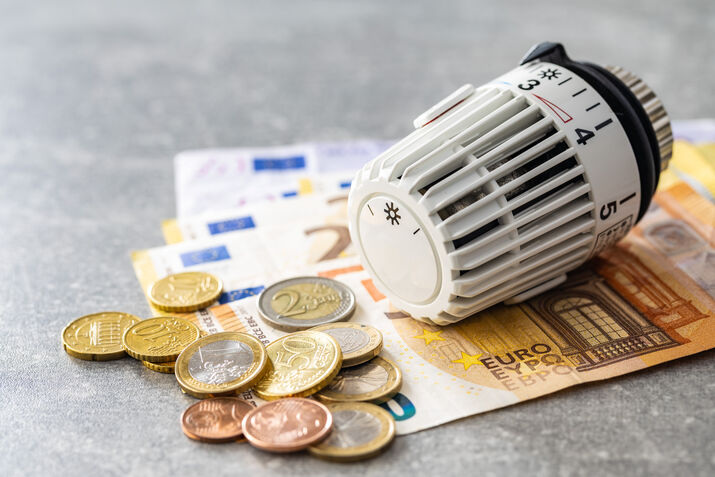
Understanding the cost factors involved in emergency HVAC services helps homeowners prepare financially for unexpected repairs. Emergency repairs often require specialized parts and skilled technicians, which can increase the overall expense. Being aware of these costs allows you to make informed decisions and find reliable 24/7 emergency HVAC services when urgent help is needed.
Emergency Service Pricing
Emergency HVAC repair costs are generally higher than regular service fees due to after-hours labor, urgent response needs, and the immediate availability of parts. Additional charges may apply for weekend or holiday calls, reflecting the increased demand and inconvenience for technicians. However, some emergencies may be temporarily resolved to restore basic system function until a full repair can be scheduled during normal business hours.
Value and Investment Perspective
Emergency repairs that restore heating and cooling function also prevent costly property damage from extreme temperatures or frozen pipes. Investing in quality emergency HVAC services often includes warranties or guarantees that ensure repair quality, making the higher initial cost more reasonable. Additionally, choosing energy-efficient heating and cooling systems during replacement can reduce future emergency risks and lower long-term operating expenses.
Final Thought
Understanding what constitutes an HVAC emergency and knowing how to respond appropriately can save you time, money, and potentially prevent dangerous situations in your home. From recognizing the warning signs of system failures to implementing preventive maintenance strategies, being prepared for heating and cooling emergencies protects your family’s comfort and safety year-round.
Remember that while some troubleshooting steps can be handled safely by homeowners, true emergency HVAC situations involving gas leaks, electrical issues, or complete system failures during extreme weather require immediate professional intervention. By partnering with qualified emergency HVAC services and maintaining your system regularly, you can minimize the likelihood of experiencing urgent repair situations.
Don’t wait until disaster strikes—contact us today to schedule preventive maintenance or discuss your emergency HVAC needs. When emergencies do arise, Callidus Air provides 24/7 emergency services to restore your comfort and safety quickly.
Frequently Asked Questions About HVAC Emergency
This FAQ section addresses common concerns and provides clear guidance to help you respond effectively and keep your home safe and comfortable.
What qualifies as an HVAC emergency?
An HVAC emergency includes any situation involving immediate safety risks (gas leaks, electrical problems), complete system failure during extreme weather, or conditions that could cause property damage. Carbon monoxide concerns, burning smells, and water leaks also constitute emergencies requiring immediate professional attention.
How quickly can emergency HVAC services respond?
Most reputable emergency HVAC companies aim to respond within 2-4 hours for true emergencies, with some offering same-day service. Response times may vary based on location, weather conditions, and service demand. Companies should provide realistic timeframes when you call.
Are emergency HVAC repairs more expensive than regular service?
Yes, emergency HVAC services typically cost 1.5-2 times more than regular repairs due to after-hours labor rates, urgent response requirements, and immediate parts procurement. However, addressing emergencies quickly often prevents more costly damage and additional problems.
Can I prevent HVAC emergencies through regular maintenance?
Regular maintenance significantly reduces emergencies by identifying potential problems early, ensuring system efficiency, and replacing worn components before they fail. Annual professional inspections and regular air filter changes are the most effective preventive measures homeowners can take.
Should I attempt DIY repairs during an HVAC emergency?
For safety reasons, avoid DIY repairs during HVAC emergencies, especially those involving gas, electrical components, or refrigerant systems. You can safely check circuit breakers, replace air filters, and ensure proper airflow, but complex repairs require professional emergency HVAC services to prevent injury and further damage.

